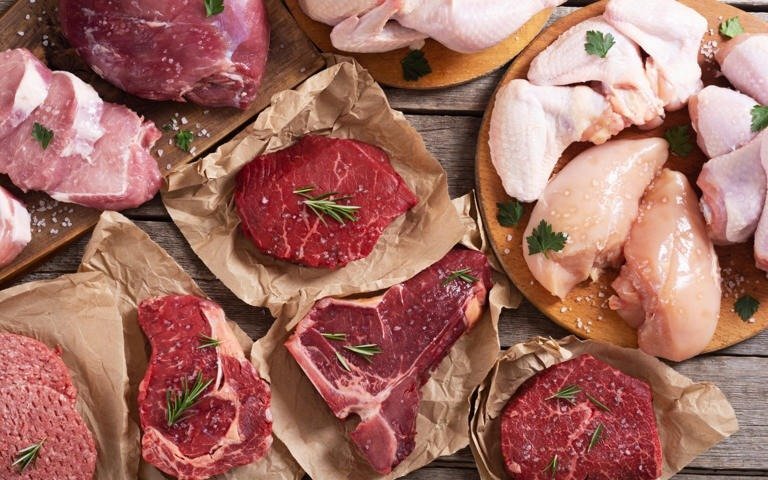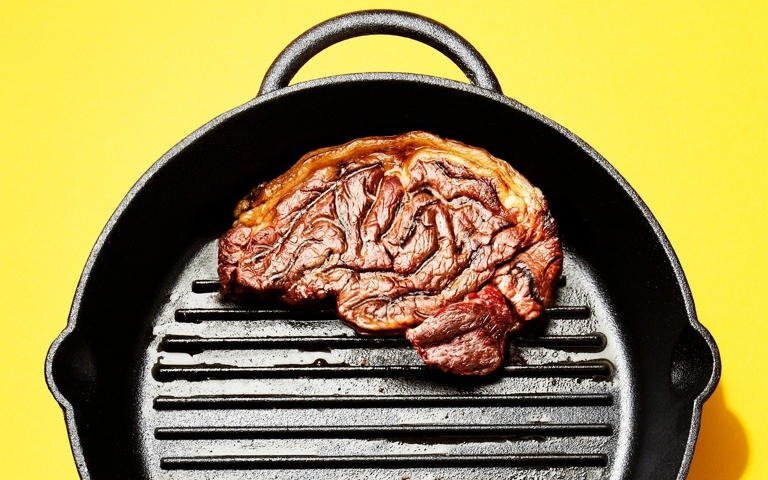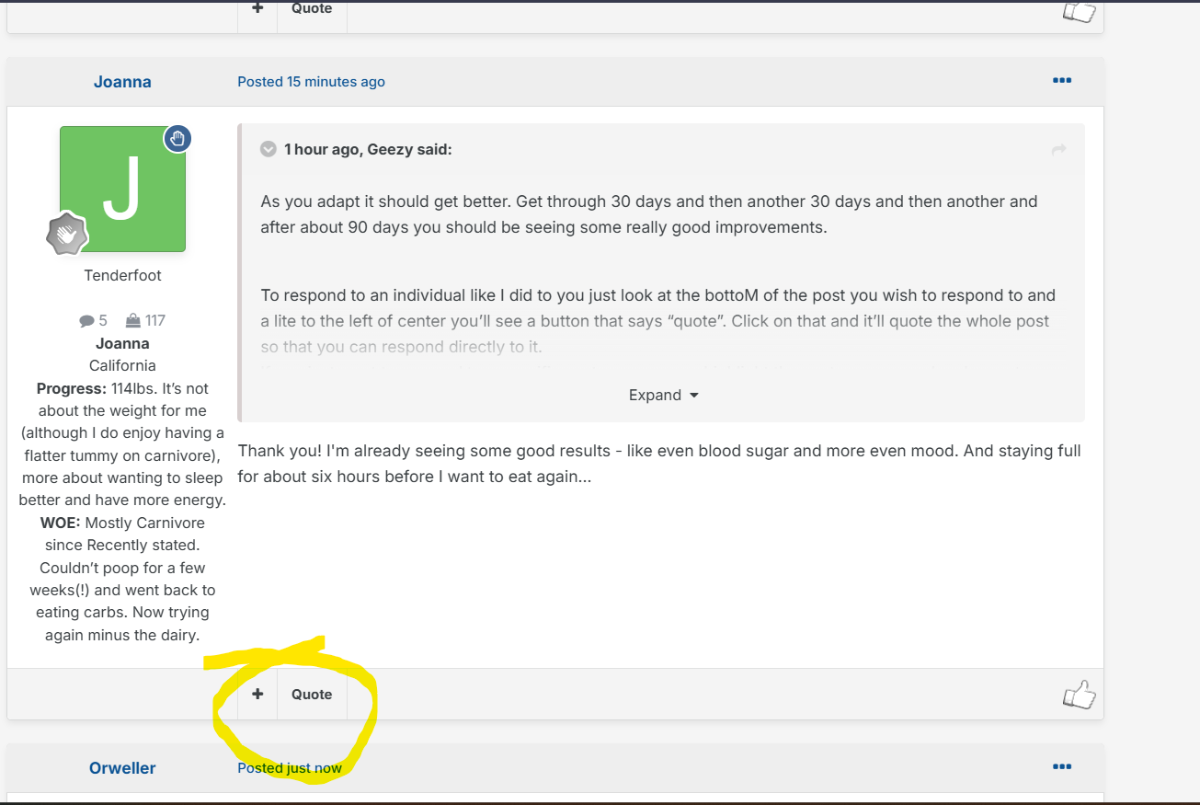6 popular peanut butters linked to colon cancerStory by Son of Grey Peanut butter is a staple in many households, loved for its creamy texture, nutty flavor, and protein content. However, not all peanut butter is created equal. Certain types of commercially processed peanut butter may contain added sugars, unhealthy oils, and chemical contaminants that studies suggest could increase the risk of colorectal cancer. Understanding which kinds to avoid can help you enjoy peanut butter safely while maintaining a healthy diet. Here’s a look at kinds of peanut butter linked to colon cancer risks. Peanut Butter with Added Hydrogenated OilsMany mass-market peanut butters contain hydrogenated oils to improve shelf life and prevent separation. These trans fats are widely linked to inflammation and increased cancer risk, including colon cancer. Common brands with older formulations that included hydrogenated oils include Skippy Creamy Peanut Butter and Jif Creamy Peanut Butter. While these brands have reformulated many of their products to remove partially hydrogenated oils, older stock and certain varieties may still pose risks. Peanut Butter High in Added SugarsExcessive sugar consumption has been associated with chronic inflammation and insulin resistance, factors that can contribute to colon cancer development. Many flavored or “sweetened” peanut butters—such as Reese’s Peanut Butter Spread or honey-flavored supermarket brands—contain high amounts of added sugar beyond what’s naturally in peanuts. These products are convenient for desserts and snacks but may carry hidden health risks when consumed frequently. Peanut Butter Contaminated with AflatoxinsAflatoxins are naturally occurring toxins produced by molds on peanuts, particularly if storage conditions are poor. Long-term exposure to aflatoxins has been linked to liver cancer and may contribute indirectly to colorectal cancer risk due to systemic inflammation and DNA damage. While major brands like Smucker’s Natural Peanut Butter and Planters Peanut Butter test rigorously for aflatoxins, lower-cost store brands or imported peanut butters may be more likely to contain small amounts of these toxins. Ultra-Processed Peanut ButtersUltra-processed peanut butters often contain a mix of additives, stabilizers, and preservatives that can affect gut health. Poor gut microbiome balance is increasingly recognized as a factor in colon cancer risk. Brands like Peter Pan Extra Crunchy or value-line supermarket peanut butters may include emulsifiers and stabilizers that are generally safe in small amounts but could have cumulative effects over time when consumed daily. Tips for Choosing Safer Peanut ButterOpt for natural or “just peanuts” varieties with no added hydrogenated oils or sugars. Check for aflatoxin testing or certifications from major brands. Store peanut butter properly in a cool, dry pantry or refrigerate to reduce mold growth. Moderate consumption to avoid excess calories, sugars, or unhealthy fats. While peanut butter can be a healthy protein and fiber source, products with hydrogenated oils, added sugars, aflatoxin contamination, or excessive processing may contribute to colon cancer risk. Choosing natural, minimally processed peanut butter from trusted brands like Smucker’s Natural, MaraNatha, or 365 by Whole Foods, and storing it carefully, can help you enjoy this classic snack safely and responsibly. ARTICLE SOURCE: https://www.msn.com/en-us/health/other/6-popular-peanut-butters-linked-to-colon-cancer/ar-AA1WvYFn?











Why a healthy brain requires a meaty diet
Story by Emily Craig
We all think we know what we should be doing to keep our brains fit, whether it’s learning a new language, socialising or getting enough sleep. Among this catalogue of habits, eating a juicy steak is unlikely to be at the top of your list.
But it should be, according to one Harvard-trained psychiatrist who specialises in nutrition science and brain metabolism. She recently claimed that the brain “needs meat” because it is jam-packed with nutrients that are either difficult or impossible to get from plant sources.
Scientists and nutrition experts seem to agree. “Animal-sourced foods – meat, fish, dairy and eggs – are nutrient-rich foods,” says Alice Stanton, a professor of cardiovascular therapeutics at the Royal College of Surgeons in Ireland, who has authored reports warning against shunning meat from our diet. A diet that consists exclusively of plant-based foods risks the brain as well as bone health, fertility and immune function, she warns.
Why is meat good for the brain?
Meat, particularly red meat, is one of the best sources of zinc. A 250g steak contains around 10.3mg – surpassing the daily recommended intake for men (9.5mg) and women (7mg).
Failing to include enough of this mineral in your diet can lead to cognitive impairment – difficulties remembering, learning and concentrating – according to Dr Katherine Livingstone, a senior research fellow at the Institute for Physical Activity and Nutrition at Deakin University in Victoria, Australia.
B12 – a vitamin found only in animal products – is another reason to eat meat, as it is vital for the healthy function and development of brain and nerve cells. “Deficiencies may impact on our memory, thinking and social abilities as we age,” Dr Livingstone adds.
Adults are advised to eat 1.5 micrograms (mcg) per day. Liver (100mcg per 120g), beef (4.4mcg per 250g) and chicken (0.53mcg per 150g) are among the most potent sources.
Additionally, meat is a complete protein, meaning it provides all the essential amino-acids that the body needs. Eating enough of this macronutrient can lower the risk of dementia by a fifth, according to a study from the Mayo Clinic in Arizona. This may be down to protein supporting the function of neurons in the brain, the scientists suggested.
UK health advice sets out that people need around 0.75g of protein per kilogram of body weight, which equates to around 56g per day for men and 45g for women.
Per 100g, chicken (32g), pork chops (31.6g) and lamb chops (29.2g) are the richest sources. For comparison, plant-based sources of protein – such as tofu (8.1g), red lentils (7.6g) and chickpeas (7.2g) – can contain just a quarter of that amount for the same serving size.
Prof Ian Givens, the director of the Institute for Food, Nutrition and Health at the University of Reading, notes that meat also contains docosahexaenoic acid, a long-chain omega-3 fatty acid that maintains brain and neurological function – though oily fish contains even more.
Selenium is a mineral that protects cells from damage and is vital for brain signalling. Men need around 75mcg per day, while women should have around 60mcg. Pork is one of the richest sources (18mcg per 100g), along with chicken thighs (15mcg per 100g) and turkey breast (10mcg per 100g).
What meat should we eat and how much?
Official UK advice recommends eating no more than 70g of red or processed meat per day – which is around the size of a deck of cards – but there is no official guidance on white meat (chicken and turkey).
We all know that red meat can be high in salt and saturated fat, meaning that eating too much over time can raise cholesterol and blood pressure, ultimately contributing to heart and circulatory disease. Diets high in saturated fat have also been linked to poor cognitive function, studies show.
The key, as usual, is moderation. Prof Givens recommends eating slightly less than officially recommended – the equivalent of around 50g of unprocessed red meat per day and cutting out processed meat intake to zero.
It’s also important to be savvy about the cut of meat you choose.
“Fattier cuts, especially red meat, tend to be high in saturated fat. Choose lower-fat versions of minced red meat,” says Rob Hobson, a registered nutritionist and the author of the cookbook Unprocess Your Life.
“It doesn’t mean you can’t enjoy fattier meats occasionally, but it’s healthier to go for lean meat most of the time. Cuts of poultry like the thigh, drumstick and wings are fattier but you can just remove the skin after cooking if you want to reduce the saturated fat content,” he says.
For comparison, 100g of lamb can contain around 20g of saturated fat, while the same amount of turkey breast contains less than 1g.
But when it comes to white meat, although it is a good source of lean protein, it contains fewer of the micronutrients found in red meat – especially B12 and iron, Mr Hobson notes.
“As plant-based foods have grown in popularity, it has been assumed that meat is bad for you, but in fact it is very nutritious, especially lean red meat. There are wider issues surrounding meat in terms of its impact on the environment but nutritionally lean red meat is more nutritious that lean white meat,” he adds.
Prof Givens adds: “The justification for red meat consumption is really a nutritional one so I would go for lean beef, which generally has a higher iron and zinc content than lamb, although both tend to have similar vitamin B12. Pork is generally lower in all these nutrients.”
Can vegetarians and vegans still have good brain health?
While meat forms part of a healthy diet, people can still get the vitamins they need from plant-based foods – but it can prove more difficult and they will need to take supplements.
Vegetarians and vegans need to eat plenty of other sources of protein, such as beans, lentils and quinoa, to make sure they are consuming the right mixture of amino-acids.
Additionally, B12 is found naturally only in animal products, meaning those whose diets are plant-based need to eat foods fortified with the vitamin, such as cereal or soya products, or take a supplement. Studies have shown that a B12 deficiency is widespread among vegans.
Research has also revealed that the body better absorbs brain-supporting minerals zinc and iron from meat than plants.
ARTICLE SOURCE: https://www.msn.com/en-us/health/nutrition/why-a-healthy-brain-requires-a-meaty-diet/ar-BB1krrSt?
Subscribe to Carnivore Talk on YouTube | Be our guest on the channel | Leave me a voicemail, yo!